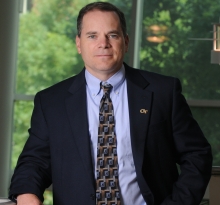ChEMS Seminar: Using High Throughput Computation to Accelerate Development of Materials for Scalable Energy Technologies

Abstract: Computational modeling of materials can be a powerful complement to experimental methods when models with useful levels of predictive ability can be deployed more rapidly than experiments. Achieving this goal involves judicious choices about the level of modeling that is used and the key physical properties of the materials of interest that control performance in practical applications. I will discuss two examples of using high throughput computations to identify new materials for scalable energy applications: the use of metal-organic frameworks in membranes and gas storage and the selection of metal hydrides for high temperature nuclear applications. These examples highlight the challenges of generating sufficiently comprehensive material libraries and the potential advantages and difficulties of using computational methods to examine large libraries of materials.
Biography: David Sholl is the School Chair of Chemical & Biomolecular Engineering at Georgia Tech, where he is also the Michael E. Tennenbaum Family Chair and GRA Eminent Scholar in Energy Sustainability. David’s research uses computational materials modeling to accelerate development of new materials for energy-related applications, including generation and storage of gaseous and liquid fuels and chemicals and carbon dioxide mitigation. He has published over 260 peer-reviewed papers. He has also written a textbook on Density Functional Theory, a quantum chemistry method that is widely applied through the physical sciences and engineering. David is a Senior Editor of the ACS journal Langmuir. More information on David’s research group is available from http://sholl.chbe.gatech.edu/
Share
Upcoming Events
-
MSE Special Seminar: Architecting 3D Complex Materials for Sustainability
-
MSE Special Seminar: Decarbonizing Industries for a Climate-resilient Future - From Renewable Energy to Sustainable Material Recovery
-
MAE 298 SEMINAR: Technology Developments for FIR Bolometric Detector Focal Plane Assemblies
-
CBE 298 Seminar: The Wisdom of the Crowd: Watching Bacterial Collectives (Re)shape Themselves
-
CEE Seminar: BIM and the Digital Twin
